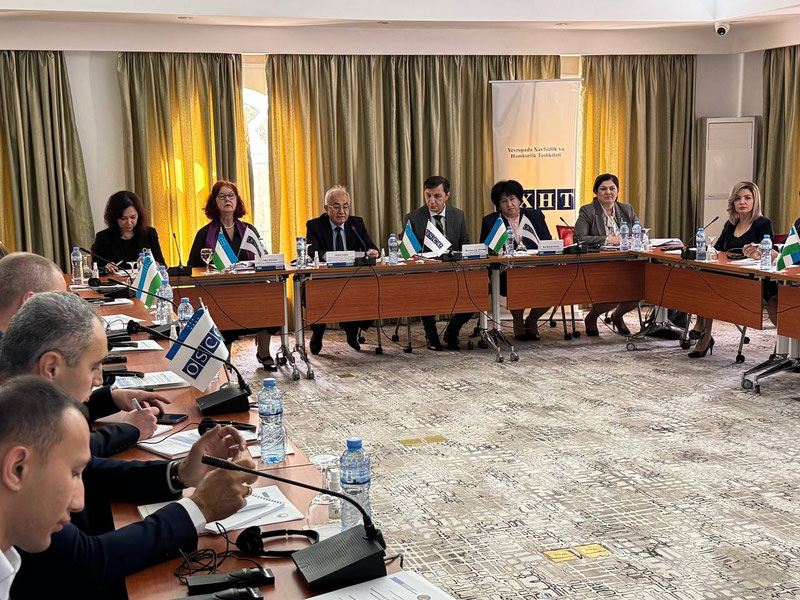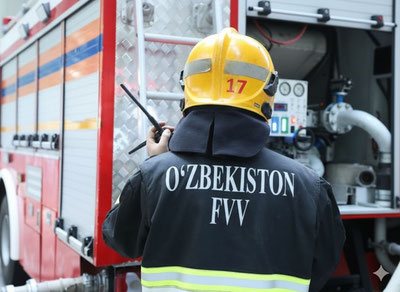In Tashkent, a roundtable was held on the theme of "Gender-Sensitive Penal Execution Institutions's Management Strategies: Advanced Experience and Main Problems". The event was organized within the framework of the OSCE's confirmed "Roadmap" for implementing projects in the Republic of Uzbekistan for 2023-2024, in collaboration with the National Center for Human Rights of the Republic of Uzbekistan, the OSCE Coordinator in Uzbekistan's Projects, and the Department for the Execution of Punishments under the Ministry of Interior Affairs. This was reported by the press service of the National Center for Human Rights of the Republic of Uzbekistan.
The main focus of the event was on ensuring gender equality in the management of various types of institutions, enhancing the effectiveness of protecting human rights through the use of international experience and advanced approaches, and particularly on discussing the prospects of managing closed institutions between Norway and Uzbekistan and strengthening dialogue on existing problems in the field.
The roundtable was attended by officials from the Department for the Execution of Punishments and penal execution institutions under the Ministry of Interior Affairs.
At the opening of the event, the Director of the National Center for Human Rights of the Republic of Uzbekistan, Akmal Saidov, the OSCE Coordinator in Uzbekistan's Projects' Acting Coordinator Zilke Klöver, and the inspector for special assignments of the Department for the Execution of Punishments under the Ministry of Interior Affairs, Burkhonkhoja Akromov, spoke.
In particular, A. Saidov emphasized the expansion of prisoners' rights and legal interests to make them sincerely regret the committed crime and shape them as worthy members of society. He highlighted the rights granted to prisoners such as voting, pension provision, social insurance, acquiring a profession, education, and access to quality medical care.
Regarding the latest reforms to ensure the rights and interests of prisoners, it is necessary to mention the closure of 4 colonies that do not meet the demands of the times, including the infamous “Tashkent” and “Jaslyk” colonies. In addition, from January 1, 2019, probation activities began aiming at orienting individuals not subjected to imprisonment toward a healthy social life.
Today, the number of prisoners serving sentences in our country's penal institutions is 68 per 100,000 population. This indicator is the lowest among the member countries of the Commonwealth of Independent States, a result of reforms carried out in the field of ensuring human rights and the supremacy of law.
In turn,Z. Klöver praised the reforms undertaken in Uzbekistan in the protection of human rights and gender equality. She joyfully noted the efforts aimed at strengthening the rights of prisoners and humanitarian treatment. She also emphasized the importance of implementing advanced international practices in this field and always supported by the OSCE.
B. Akromov provided information about practical measures for the social reintegration and protection of prisoners' rights, and announced the establishment of 69 separate rooms for lawyers in investigative detention centers and closed-type colonies. The Ombudsman and Business Ombudsman's unhindered access to such facilities was noted.
During the event, foreign experience in the field was also discussed. The head of the Bredtveit prison and investigative detention center,Doris Bakken, presented Norway's experience in managing women's prisons, explaining how elements like gender-sensitive services, training programs, and health services help successfully reintegrate women into society after imprisonment. She discussed in detail the significance and effectiveness of the events, teaching, and counseling processes in the women's prison in Norway.
Moreover, during the roundtable, the head of a penal institution, Gulrukh Karimova, conducted a presentation dedicated to the policy, practice, and problems of managing women's prisons in Uzbekistan. She spoke about the opportunities for education, profession acquisition, and psychological assistance created in women's prisons, as well as detailed rehabilitation programs, discussing existing problems and measures being taken to address them.
In the discussions, the Deputy Director of the National Center for Human Rights of the Republic of Uzbekistan,Dilnoza Muratova, the representative of the International Foundation for the Penal Execution, and an international consultant on penal reform and human rights,Azamat Shambilov, were among the experts who participated.






